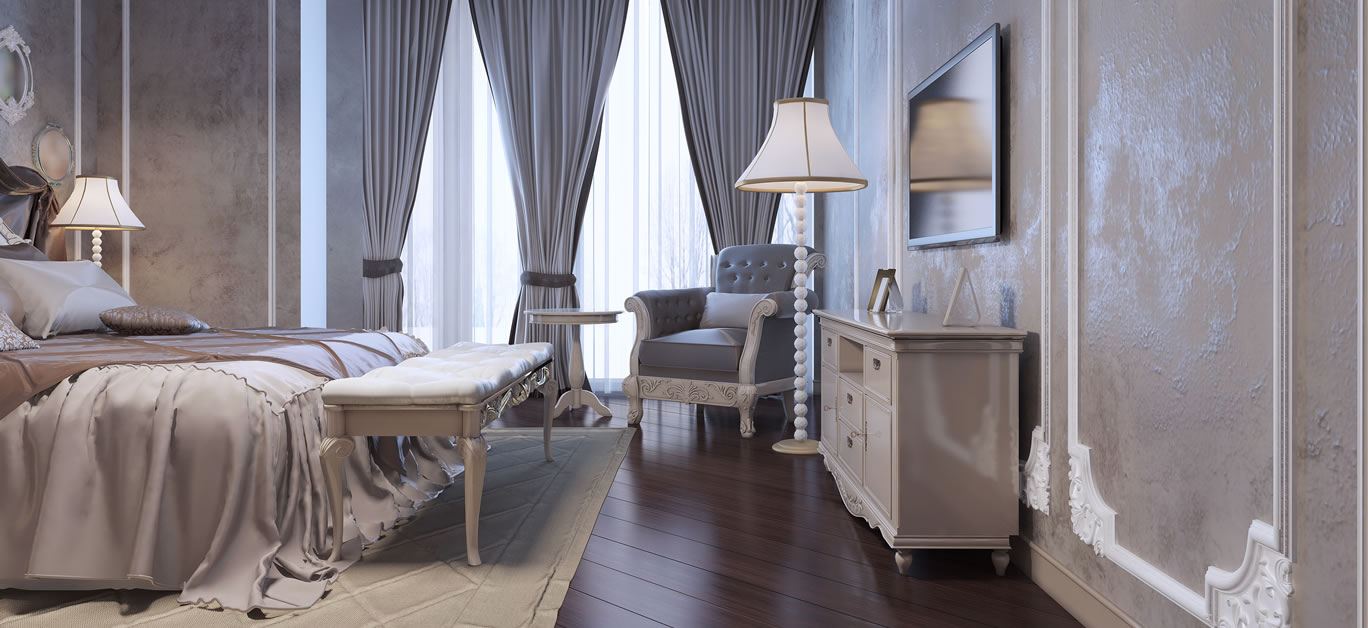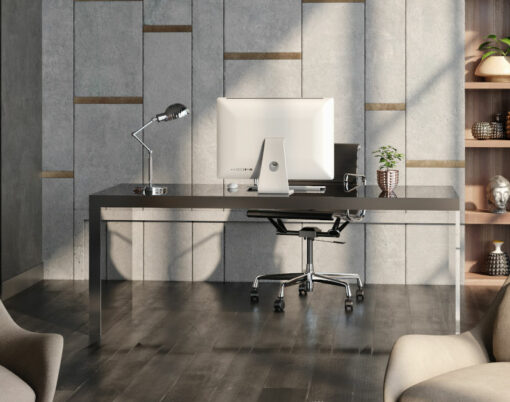Curtains bring colour, pattern and texture into a room, but it can be hard to decide on the right style for the room in question. You need to establish if you want a formal, causal, traditional or contemporary style. You will also need to consider how practical the curtains are such as the weight and transparency of the fabric and the shape and density of the window.
To help you decide on which curtains you want to buy for your room, leading interior designer Vanessa Arbuthnott has shared her helpful tips to find the perfect pair of curtains.
1. Measurements
Curtains which have been mounted perfectly will enhance your décor and make your room feel noticeably bigger. In order to gage which size you need, measure the height from the rod to the floor before hanging curtains and remember to include the rings and account for how much space you’d like between the curtains and the floor. For a tailored look, a standard curtain panel is 5cm winder than the window.
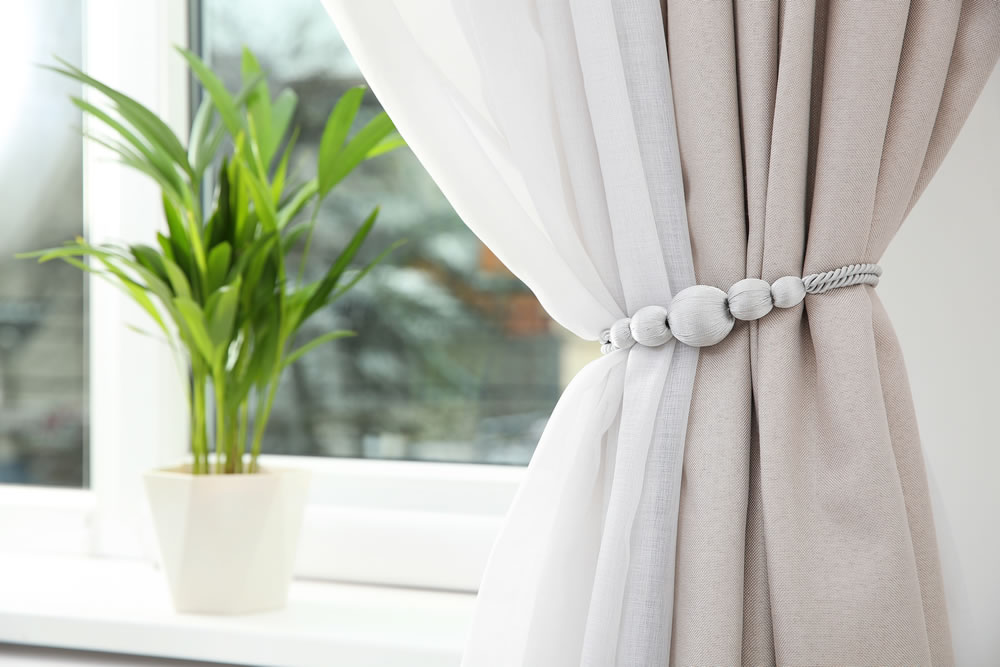
2. Finish with finials
This is a simple yet very effective feature. The finials are decorative end screws which are at the end of your curtain rod and can be excellent finishing touches. Finials are also great if you wish to change the style of your current curtains without replacing all of the hardware. A great room with a well-suited pair of curtains will look completed once the finials are added. A rod shouldn’t end just right over the windows, it should be of a maximum size and extended on either side. This makes the windows look larger as well as allowing more light into the room.
3. Complementary colours
Complementary colours sit opposite each other in a colour wheel, this is a traditional approach that works well. Temper the contrast with a fabric pattern that mixes in the complementary colour to your wall colour. If you have blue walls then the complementary colour is orange so for the curtains you can opt for an orange and ivory colour scheme.
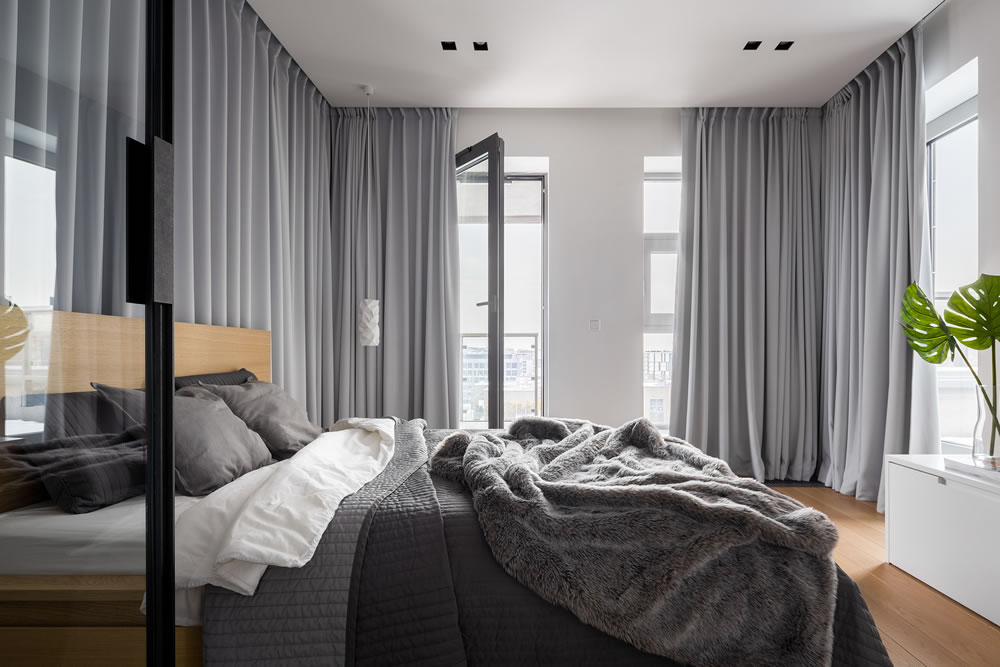
4. Choose your priorities
In the living room area make sure you identify your priorities; do you value light control or privacy? Or even aesthetics? Bright colours do fade if they are exposed to lashings of bright light from the windows and ends up looking shabby and old. Neutrals will blend in far more easily and won’t be affected by the weather.
5. Insulation
Curtains can make an impact on the overall warmth of your room. During winter, it is advised to buy thicker fabrics which help the process of reducing heat loss through the windows but in summer a thicker fabric tends to trap the heat into the room. The ideal middle ground (if your budget allows it) is to opt for both summer and winter weight curtains, if this isn’t an option then something medium would be more suited but ensure that it’s thermally lined.
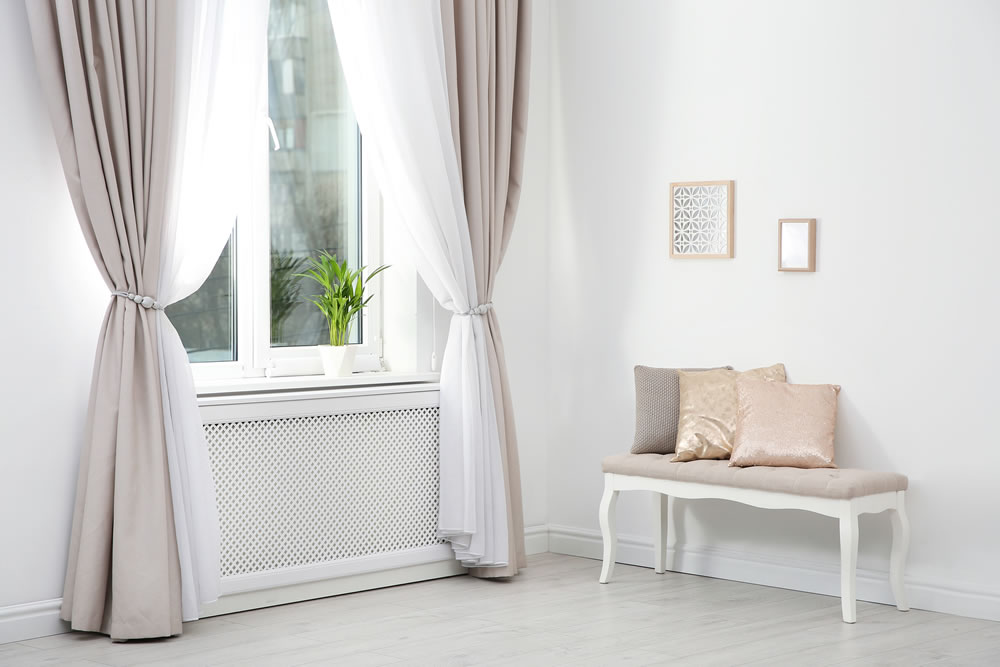
6. Consider the closed look
Curtains in communal areas will be open and shut at least once during the day so you need a pair that can be closed easily so. It is best to avoid tab top heading styles for these rooms. You should also consider how they will look when they are open, either leave them hanging for an effortless look or fix them back with hooks or ties for a soft and decorative look.
7. Don’t force it
Although curtains are added to windows as accents, don’t feel the need to apply it into every window, if the area isn’t communal then you may find curtains don’t need to be used. The decision to implement a curtain into a window is influenced by the architecture, we use curtains more often than not but if a window is more accustomed to be on its own than there is no harm to stay that way – sometimes less is more with windows since the weather determines the brightness of the room.












